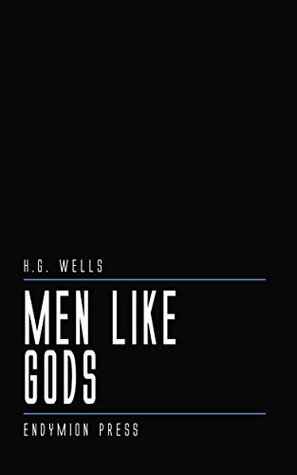More on this book
Kindle Notes & Highlights
“But surely,” said Mr. Burleigh, “there is someone or something, some council or bureau or what not, somewhere, with which the final decision rests in cases of collective action for the common welfare, Some ultimate seat and organ of sovereignty, it seems to me, theremust be.”... No, the Utopians declared, there was no such concentration of authority in their world. In the past there had been, but it had long since diffused back into the general body of the community. Decisions in regard to any particular matter were made by the people who knew most about that matter.
“The activities of our world,” said Urthred, “are all co-ordinated to secure the general freedom. We have a number of intelligences directed to the general psychology of the race and to the interaction of one collective function upon another.”
“We have been through that stage. We found at last that private property in all but very personal things was an intolerable nuisance to mankind. We got rid of it. An artist or a scientific man has complete control of all the material he needs, we all own our tools and appliances and have rooms and places of our own, but there is no property for trade or speculation. All this militant property, this property of manoeuvre, has been quite got rid of. But how we got rid of it is a long story. It was not done in a few years. The exaggeration of private property was an entirely natural and necessary
...more
They found themselves, too, in possession of mechanical power on a scale beyond all previous experience, and not simply of mechanical power; physiological and then psychological science followed in the wake of physics and chemistry, and extraordinary possibilities of control over his own body and over his social life dawned upon the Utopian. But these things came, when at last they did come, so rapidly and confusingly that it was only a small minority of people who realized the possibilities, as distinguished from the concrete achievements, of this tremendous expansion of knowledge. The rest
...more
The first response of the general population of Utopia to the prospect of power, leisure and freedom thus opened out to it was proliferation. It behaved just as senselessly and mechanically as any other animal or vegetable species would have done. It bred until it had completely swamped the ampler opportunity that had opened before it. It spent the great gifts of science as rapidly as it got them in a mere insensate multiplication of the common life. At one time in the Last Age of Confusion the population of Utopia had mounted to over two thousand million... “But what is it now?” asked Mr.
These great masses of population that had been blundered into existence, swayed by damaged and decaying traditions and amenable to the crudest suggestions, were the natural prey and support of every adventurer with a mind blatant enough and a conception of success coarse enough to appeal to them.
Every Utopian child is taught to the full measure of its possibilities and directed to the work that is indicated by its desires and capacity. It is born well. It is born of perfectly healthy parents; its mother has chosen to bear it after due thought and preparation. It grows up under perfectly healthy conditions; its natural impulses to play and learn are gratified by the subtlest educational methods; hands, eyes and limbs are given every opportunity of training and growth; it learns to draw, write, express itself, use a great variety of symbols to assist and extend its thought. Kindness and
...more
If the individual is indolent there is no great loss, there is plenty for all in Utopia, but then it will find no lovers, nor will it ever bear children, because no one in Utopia loves those who have neither energy nor distinction. There is much pride of the mate in Utopian love. And there is no idle rich “society” in Utopia, nor games and shows for the mere looker-on. There is nothing for the mere looker-on. It is a pleasant world indeed for holidays, but not for those who would continuously do nothing. For centuries now Utopian science has been able to discriminate among births, and nearly
...more
Very often men and women, whose work brought them closely together, were lovers and kept very much together, as Arden and Greenlake had done. But they were not obliged to do that. There had not always been this freedom. In the old crowded days of conflict, and especially among the agricultural workers and employed people of Utopia, men and women who had been lovers were bound together under severe penalties for life. They lived together in a small home which the woman kept in order for the man, she was his servant and bore him as many children as possible, while he got food for them. The
...more
“Then I was right, and you have abolished the family?”
No. Utopia had not abolished the family. It had enlarged and glorified the family until it embraced the whole world.


